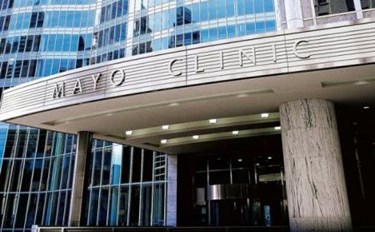Boston Scientific, Mayo Clinic Joint R&D Projects Heading To Human Trials In 2016

Boston Scientific and Mayo Clinic have publicly revealed a research and development partnership the pair launched three years ago, aiming to address unmet needs in the device industry. Unlike other partnerships cropping up between med techs and hospital systems, this collaboration has been working “from scratch” on developing a pipeline of products, including a centering catheter for cardiac surgery and an additional indication for Boston Scientific’s spinal cord stimulation (SCS) system.
Over the last few years, several big names in the medical device industry — including Medtronic, Johnson & Johnson, and St. Jude Medical — have inked “risk-sharing agreements” with healthcare systems to improve patient access to their devices while giving them an opportunity to speed market acceptance in saturated device sectors.
In November, Philips competed with Siemens and GE to nab a partnership with MacKenzie Health that is worth $226 million. Altaf Stationwala, CEO of MacKenzie Health, commented that Philips was chosen for both its existing product offerings and its expertise in developing new healthcare solutions.
The Boston Scientific and Mayo Clinic collaboration differs from these other partnerships because it was not based on any existing product pipeline, spokespeople from the parties told Star Tribune. According to Jim Rogers, a patent attorney for Mayo Clinic Ventures, other medtechs had approached the Mayo Clinic, but they were mostly interested in “selling something.”
“This really starts at the beginning. It’s going in with a blank sheet of paper, not us coming in with specific products and ideas,” said Kevin Ballinger, SVP of Boston Scientific. “It’s engineers and physicians in their environment, jointly understanding what are some of the unmet clinical needs, before talking about product solutions.”
The collaboration has twelve ongoing projects, four of which will be going into human clinical trials later this year, the Star Tribune revealed. In one project, engineers have incorporated a funnel into a catheter to improve its navigation through damaged blood vessels where blood is still flowing. In a clinical trial to be launched later this year, researchers will be investigating an additional indication for the Precision Spectra SCS system.
“This has been about, how do we make a better product,” said Rogers, adding that Boston Scientific was “willing to trust us, and we were willing to trust them, and I think good things have come of that.”
According to Andrew Danielson, who works in business development at Mayo Clinic Ventures, both parties plan to share the financial benefits of any collaborative products that reach the market.
Though financial terms of the deal were not discussed, Rogers commented that Boston Scientific’s recent influx of cash resulting from the temporary suspension of the medical device tax — an estimated $75 million — has been invested in the partnership with Mayo Clinic, reported the Minneapolis/St. Paul Business Journal.
“To us, that says a lot about where their leadership is on the importance of this collaboration,” said Rogers. “And I know we feel the same way on our side.”
